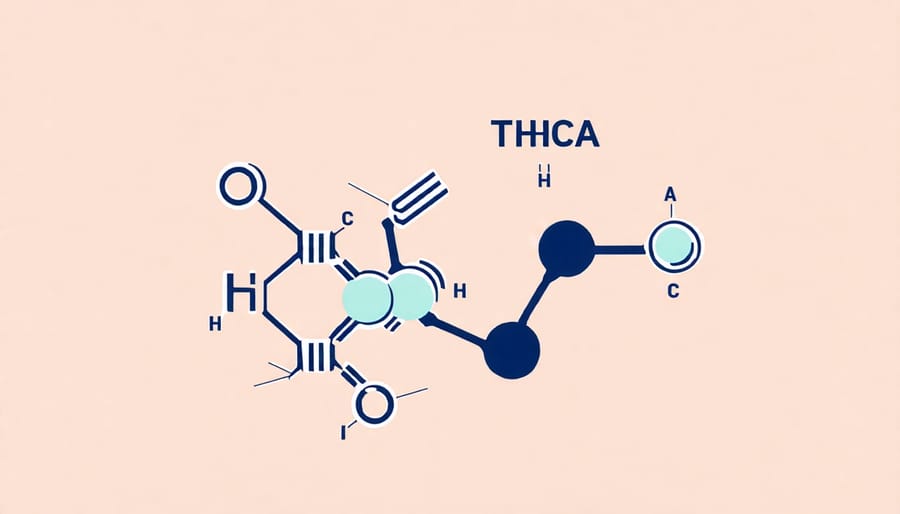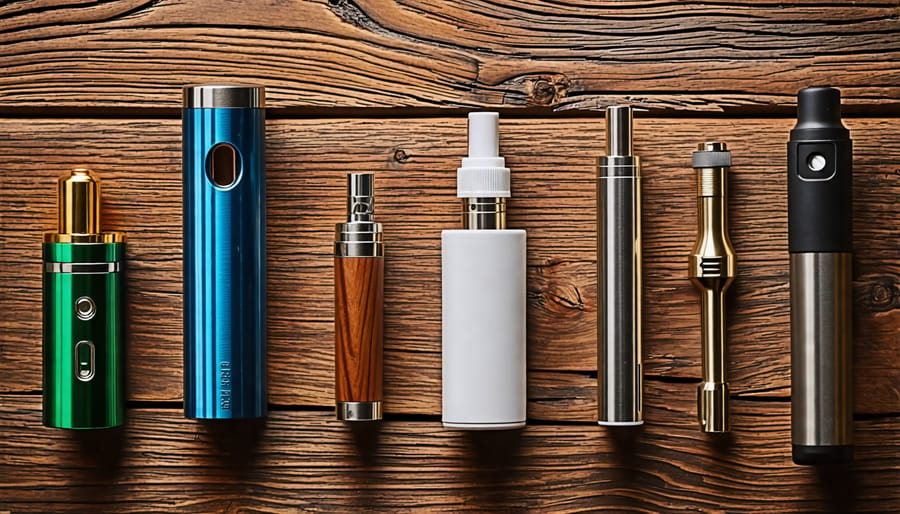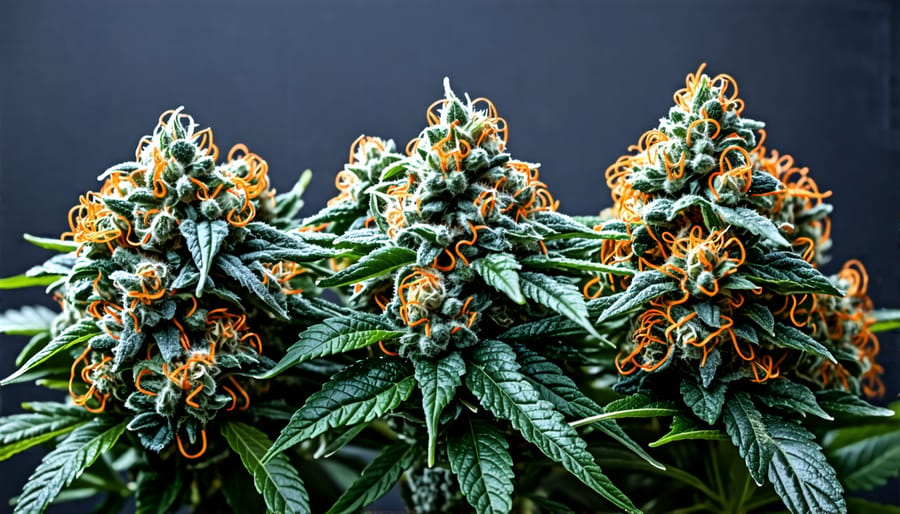Discover how vaping THCA flowers can transform your experience. Prioritize high-quality strains to maximize benefits, focusing on potency and purity; explore THCA flower for sale to find reliable sources. Master temperature control settings on your device to preserve THCA’s chemical integrity, ensuring effective conversion to THC for elevated effects. Incorporate THCA vaping into wellness routines for potential anti-inflammatory and neuroprotective properties, supported by ongoing research. Stay informed on regulatory updates and local laws governing THCA products, ensuring compliance and responsible use.
THCA, or tetrahydrocannabinolic acid, is a non-psychoactive compound found in cannabis flowers. Its chemical structure consists of a carboxylic acid group, differentiating it from its well-known counterpart, THC (tetrahydrocannabinol). Upon exposure to heat—a process known as decarboxylation—THCA transforms into THC, which is psychoactive and confers the familiar euphoria associated with cannabis. Vaping THCA flowers allows consumers to control this transformation closely, potentially optimizing the balance between experiencing the therapeutic benefits of THCA, such as anti-inflammatory and neuroprotective properties, and enjoying the psychoactive effects of THC. This controlled conversion is pivotal for consumers seeking specific experiences or managing symptoms, as the process of decarboxylation is influenced by temperature and vaping method. Understanding THCA’s structure and behavior underscores the nuanced nature of cannabis vaping, highlighting how users can tailor their consumption through educated decisions about heat application.

Vaping THCA flowers involves heating the product to a temperature that releases its active compounds without burning the plant material, offering a significantly different experience from traditional smoking. This method of consumption reduces the formation of harmful chemicals such as carcinogens and tar, which are typically produced during combustion. As a result, vaping can lead to fewer respiratory irritations and is considered a cleaner option compared to smoking. It also allows for better control over dosage and flavor, providing a more customized experience for users.
Additionally, the chemical conversion of THCA into THC is more efficient through vaping, as the precise temperature control retains more cannabinoids, potentially enhancing the therapeutic effects. By creating a smoother inhalation process, vaping can be more appealing to those sensitive to the harshness associated with smoking. This stark contrast between vaping and traditional smoking underscores vaping’s potential as a preferred method, especially for those seeking to minimize health risks while enjoying the benefits of THCA.

THCA, or tetrahydrocannabinolic acid, is gaining attention for its potential in pain management and relaxation, especially in its non-psychoactive form prior to conversion into THC. Vaping THCA flowers may offer pain relief without the “high” often associated with cannabis. As THCA interacts with the body’s endocannabinoid system, it may help modulate pain signals and reduce inflammation, contributing to a soothing experience favored by many users seeking natural alternatives to traditional pain relief methods.
Moreover, THCA’s relaxing properties might aid in managing stress and tension by promoting a sense of calm. This is particularly relevant for individuals looking for stress relief during their daily routines without psychoactive effects. Users report a mild euphoric sensation that can help diminish feelings of anxiety and improve overall well-being, making it an attractive option for those who are sensitive to THC’s mind-altering impacts.
While more research is required to fully understand THCA’s mechanisms of action, its promising role in pain management and relaxation makes it a compelling choice. For those interested in these benefits without the cognitive changes THC induces, vaping THCA flowers could offer a balanced approach to well-being.
Vaping THCA flowers is increasingly recognized for its potential anti-inflammatory benefits, making it a topic of interest for those exploring alternatives to traditional methods of managing inflammation-related conditions. Tetrahydrocannabinolic acid, or THCA, is a non-psychoactive cannabinoid found in raw cannabis plants. When vaped at optimal temperatures using devices like electric dab rigs, THCA is believed to offer significant anti-inflammatory effects without causing the psychoactive effects associated with THC.
Research suggests that THCA may help reduce inflammation by interacting with the body’s endocannabinoid system, which plays a crucial role in regulating immune responses. For individuals managing chronic ailments such as arthritis, lupus, or inflammatory bowel disease, incorporating THCA could offer relief by alleviating symptoms like pain and swelling. While more clinical studies are needed to fully understand the extent of THCA’s medicinal properties, preliminary findings are promising, indicating that THCA could be a valuable tool in a holistic approach to health.
Given its anti-inflammatory potential, THCA vaping is gaining traction not only among wellness enthusiasts but also within cultural and legal discussions surrounding cannabis products. As the landscape evolves, staying informed about the scientific developments and regulatory changes is important for those considering THCA as part of their health regimen.
When selecting THCA flower for vaping, focusing on quality is crucial to ensure both safety and an optimal experience. One of the first steps is to check the flower’s appearance. High-quality THCA flowers should boast vibrant colors with visible trichomes, the tiny crystals containing beneficial cannabinoids. The aroma is also a reliable indicator—quality flowers will emit a strong, pleasant scent specific to their strain.
Additionally, sourcing from reputable suppliers is essential. Look for producers who provide lab-tested products to verify the purity and potency of their THCA flower. This step not only confirms a higher cannabinoid content but also ensures the absence of harmful contaminants.
Understanding the current trends, like organically grown or sustainably sourced flowers, can further guide your choice. These options often emphasize both ethical considerations and quality standards. Finally, engaging with community reviews and resources can provide insights and firsthand experiences from other users, enhancing your selection process. For more information on vaping product benefits, consider exploring CBD vape benefits.

Selecting the right device for vaping THCA flower is crucial for achieving optimal benefits and ensuring user safety. The rapidly evolving vape market offers a range of devices, but not all are designed to efficiently handle the unique properties of THCA, a non-intoxicating cannabinoid that has gained popularity for its potential therapeutic effects.
When considering a device, pay attention to the heating element. Devices with ceramic or quartz heating chambers are typically recommended for THCA flower, as they provide even heat distribution and maintain the integrity of the cannabinoids. This ensures a smooth vaping experience without the risk of combustion, which can occur with metal heating elements that might heat unevenly or excessively.
Temperature control is another important factor. THCA requires specific temperatures to properly convert into THC, offering the full effects users are looking for. Vaporizers with precise temperature settings can help achieve the desired activation without overheating. Generally, a temperature range between 315°F to 430°F is ideal for converting THCA efficiently, allowing users to experience the full spectrum of benefits.
Portability and battery life should also be considered, especially for users who prioritize convenience. Compact devices with long-lasting batteries ensure you can enjoy THCA vaping throughout your day without frequent recharges.
Lastly, consider devices from reputable brands that comply with safety regulations, ensuring materials used are safe and non-toxic. Researching and selecting a device that combines quality build, appropriate safety features, and efficient functionality can greatly enhance your THCA vaping experience while safeguarding your health.
The vaping culture is undergoing significant transformation with the arrival of THCA flower vaping. As consumers become more discerning, there’s a noticeable shift towards health-conscious and natural options, propelling THCA flowers into the spotlight. Unlike traditional nicotine vaping, THCA flowers offer a different experiential profile that appeals to both seasoned vapers and newcomers curious about the intersection of cannabis and wellness.
Current trends point towards an increased interest in the therapeutic potential of cannabinoids, and THCA’s non-psychoactive nature before heating makes it an attractive option. Vapers are drawn to the potential anti-inflammatory and neuroprotective properties of THCA, reflecting a broader trend of wellness-driven consumption. This shift is also influenced by changing regulations, as legal frameworks continue to evolve, providing clearer guidelines and boosting consumer confidence in exploring cannabis products.
As regulatory landscapes adapt, and research continues to unfold, the integration of THCA into vaping culture highlights a move towards plant-based therapies, emphasizing safety, efficacy, and individual empowerment in personal health choices.
The regulatory landscape for THCA flower vaping is continually evolving, influenced by broader cannabis and hemp legislation. As of now, THCA is categorized differently than THC, leading to varying levels of legality depending on the jurisdiction. In the United States, the 2018 Farm Bill legalized hemp-derived products containing less than 0.3% delta-9 THC, which technically includes THCA dominant flowers. However, interpretations of this legality can differ significantly between states, affecting availability and use.
It’s crucial for vapers to stay informed about local laws concerning THCA to avoid any legal issues. Additionally, understanding safe practices is vital when using any vaping device. For those interested in details about secure use, resources such as discussions on vape battery safety are invaluable. As regulatory frameworks continue to shift, staying updated with legislative changes and reliable sources of information remains essential for users to navigate the complexities of THCA flower vaping.
Vaping THCA flower presents numerous benefits, particularly for those seeking an alternative method to experience the effects of cannabis. It offers a cleaner, potentially healthier way to engage with cannabinoids compared to smoking, as vaping reduces exposure to harmful compounds generated by combustion. Furthermore, users can enjoy more immediate effects with manageable dosages. As societal attitudes toward cannabis shift and legislation evolves, as evidenced by the ongoing discussions on the decriminalization of marijuana, the landscape for THCA vaping is likely to expand.
Looking ahead, we can anticipate advancements in vaporization technology, which could further enhance the efficacy and safety of THCA usage. Continued research into its effects and benefits will likely provide more insights, encouraging informed consumption. Additionally, as regulatory frameworks progress, increased standardization and quality control could enhance product reliability, building consumer trust. These future developments promise a more nuanced understanding of THCA flower vaping and its role within the broader cannabis culture. As we observe these trends, it’s essential to remain informed and engaged with both the scientific and regulatory advancements that shape the landscape of cannabis consumption.